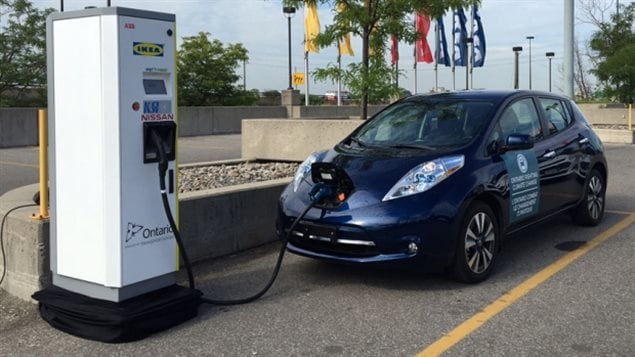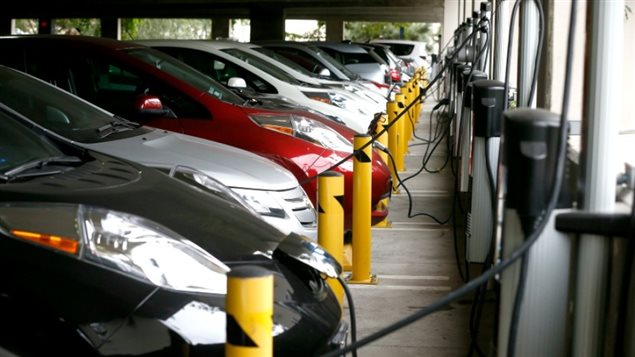Many people buy electric vehicles in hopes of reducing greenhouse gases. Many provinces in Canada encourage buying “EV’s” by providing subsidies.
A new study by the Montreal Economic Institute says the practice is “the least efficient, and most expensive” way of reducing greenhouse gas (GHG).
“It’s just a waste,” says Germain Belzile in a press release. He is Senior Associate Researcher at the MEI and co-author of the publication. “Not only do these programs cost taxpayers a fortune, but they also have little effect on GHG emissions.”
Three provinces offer subsidies; British Columbia where there’s up to a $5,000 subsidy, and Ontario and Quebec.
The MEI study focused only on the latter two provinces.

Ontario provides subsidies up to $14,000 for an EV purchase, plus additional subsidies for installation of a charging station at the home, and $80-million in public funds to set up charging stations across the province.
Quebec provides subsidies up to $8,000 for purchase of an EV or hybrid, plus a subsidy to install a home charging station.
The MEI study says the cost of saving one tonne of GHG in Ontario is $523, while the cost to taxpayers in Quebec per tonne of GHG saved, is $288, adding that the real cost is probably much higher.
Another study by Chris Kennedy, civil engineering professor at the University of Toronto, published in March 2015 in the science journal Nature-Climate Change, also raised questions about the push to electric cars.
(access here– scroll down one page to find article) (orig Nature Climate Change -abstract only- here)
He says that many of the current pollution sources from internal combustion engines can be switched to electric or mitigated such as by developing high-speed electric trains to replace short haul jet flights, and in cities by using electric trams to replace busses). Kennedy notes that the reduced pollution would result in improved human health
On the other hand his study states there are negative conscerns including: “environmental impacts of battery disposal, resilience of electrical grids, and costs amongst others”.
It also noted that switching from fossil fuels to electrical may in some cases merely be switching the source of greenhouse gas from tailpipe emissions upstream to a power plant. He points out that in 2012 electrical production worldwide was the source of about 30 per cent of global greenhouse gas production, and with ever increasing demands for more power that figure will only continue to increase unless more renewable alternatives are created.
Subsidies for the purchase of electric vehicles not only have little effect on GHG emissions, but they also cost taxpayers a lot of money M Milke MEI
Quebec’s per tonne GHG costs are lowered because virtually all of its electrical power comes from renewable hydro generation.
The MEI study also questioned subsidies for EV purchase noting that many people would have bought EV’s anyway, even without a taxpayer funded subsidy meaning that taxpayer money was essentially wasted unnecessarily.
The MEI study compared the EV subsidy costs with the same goal of reducing GHG through a recent carbon market among Quebec, Ontario, and California which costs around $18 per tonne saved, and also against a cost of between $10 and $50 from an impending federal carbon tax.
Mark Milke, independent policy analyst and co-author of the MEI publication quoted in the news release said, “The Quebec and Ontario governments have to face facts. Subsidies for the purchase of electric vehicles not only have little effect on GHG emissions, but they also cost taxpayers a lot of money. Common sense, both economically and ecologically speaking, argues in favour of reducing these subsidies, and even eliminating them”.
Additional information-sources







For reasons beyond our control, and for an undetermined period of time, our comment section is now closed. However, our social networks remain open to your contributions.